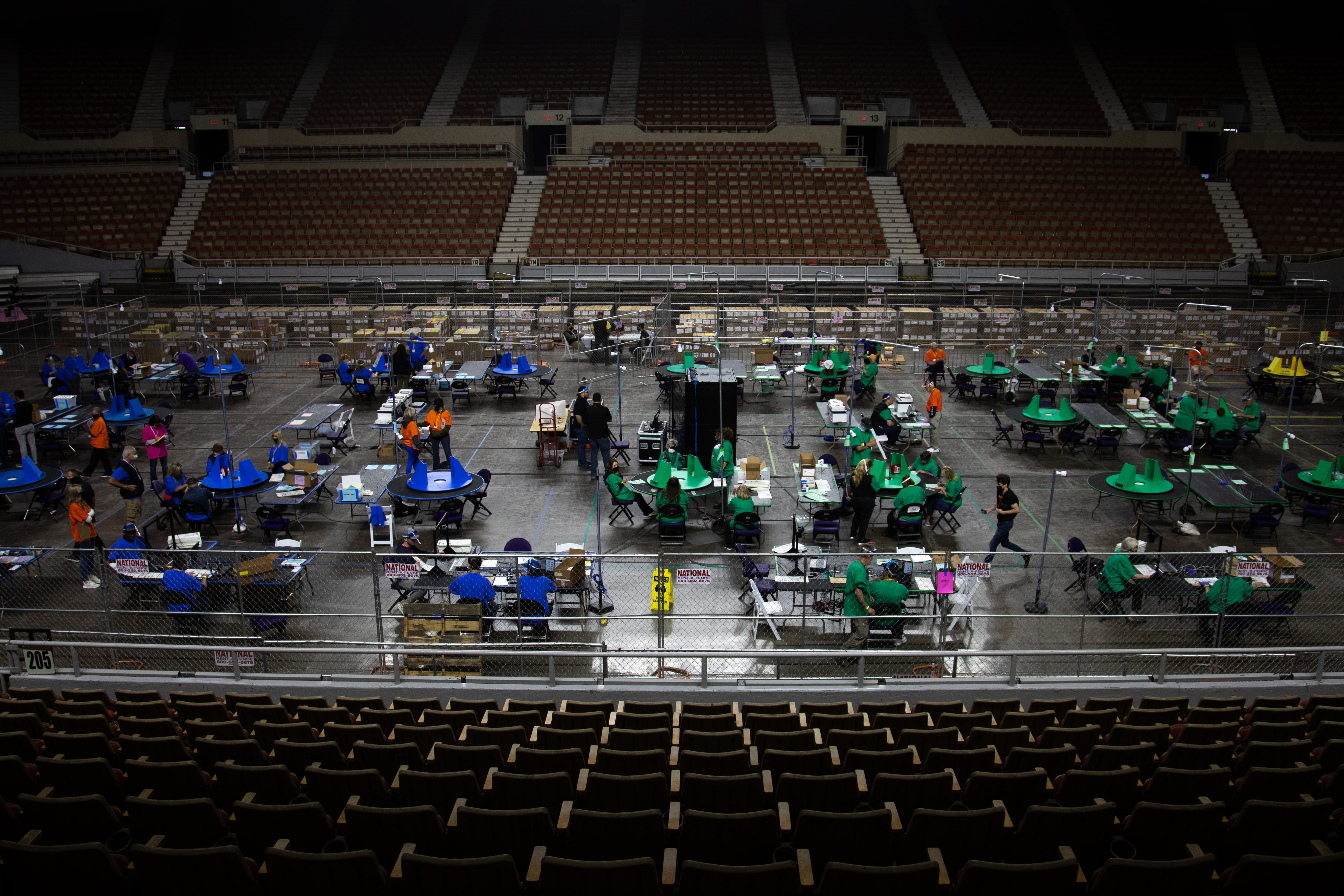The article has been updated to include additional comment from the Attorney General’s office.
Arizona Attorney General Mark Brnovich on Monday knocked down claims of dead voters casting ballots in the 2020 election, one of many unsubstantiated allegations made by contractors during theArizona Senate’s review of the 2020 presidential election, and by other groups.
Brnovich’s letter to Arizona Senate President Karen Fann, which strikes a caustic tone at times, says an investigation by the his office confirmed just one instance of a voter who was deceased as of the election among the nearly 300 voters that the contractor conducting the review for the Senate, the Cyber Ninjas, had alleged were deceased.
“Our agents investigated all individuals that Cyber Ninjas reported as dead, and many were very surprised to learn they were allegedly deceased,” Brnovich wrote.
Brnovich, a Republican who has been the attorney general since 2015, is running for U.S. Senate in Tuesday’s GOP primary.
Throughout his Senate run, he’s faced criticism from the right over his supposed inaction on election fraud claims, including from former President Donald Trump, who endorsed one of his primary opponents, Blake Masters.
Monday’s letter didn’t mince words, concluding that the claims of widespread dead voters affecting the 2020 election were “insufficient and not corroborated.”
The letter stands in contrast to Brnovich’s more ambiguous tone in an April 2022 letter, where Brnovich said there were “serious vulnerabilities” raised in the review of Maricopa County’s 2020 election, which “raises questions” about Arizona’s election that year. That letter spurred a harsh response from the Maricopa County Board of Supervisors, which rebutted his claims and accused him of playing politics.
The AG’s office found one ballot flagged by the Cyber Ninjas that warranted investigation, but “the facts of the case did not support prosecution,” said Brittni Thomason, a spokesperson for the office.
The office has prosecuted three people for voting a ballot of a deceased person in the 2020 election, records show.
The AG’s office looked into claims beyond the 282 allegedly dead voters referred by the Cyber Ninjas. Three other reports submitted to the office combined to allege 409 more dead voters. Yet another report, which didn’t distinguish between dead voters who allegedly cast ballots and dead people whose names remained on the voter rolls, claimed nearly 6,000 dead voters. These additional reports resulted in “a handful of potential cases,” he wrote.
“Some were so absurd the names and birthdates didn’t even match the deceased, and others included dates of death after the election,” Brnovich wrote.
While Brnovich noted that he considers the investigation into dead voters concluded, his investigation into other claims made by the Cyber Ninjas is still ongoing, housed in an Election Integrity Unit at the AG’s office that was established in 2019.
Thomason said the letter’s release didn’t relate to tomorrow’s election.
“Arizonans deserve to feel confident that their votes are accurately counted and protected during this election cycle,” Thomason said via email. “Just like our previous report, when we wrap up investigations, we want to release results as soon as we can to make sure voters have the most up-to-date information.”
It’s not clear how much the investigation has cost taxpayers.
“We don’t have an exact figure, but needless to say, our office spent hundreds of hours on this portion of the investigation,” Thomason said.
Rachel Leingang is a freelancer for Votebeat and co-founder of the Arizona Agenda. Contact Rachel at rleingang@votebeat.org.




